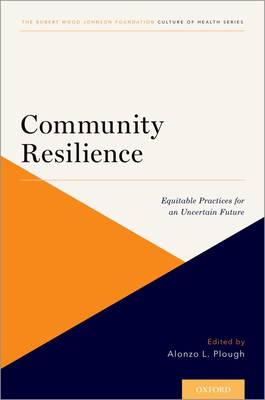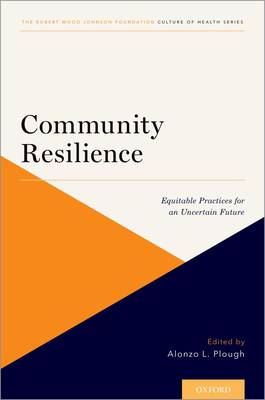
- Retrait gratuit dans votre magasin Club
- 7.000.000 titres dans notre catalogue
- Payer en toute sécurité
- Toujours un magasin près de chez vous
- Retrait gratuit dans votre magasin Club
- 7.000.0000 titres dans notre catalogue
- Payer en toute sécurité
- Toujours un magasin près de chez vous
75,95 €
+ 151 points
Description
In this fifth volume of the Robert Wood Johnson Foundation's Culture of Health series, Community Resilience: Equitable Practices for an Uncertain Future highlights the importance of resilience, or the set of assets that allow a person or place to recover when adversity hits, by illustrating the policies and stories of lived experience surrounding health equity. Whether that adversity is acute--such as an environmental disaster or an abuse of police power--or chronic--such as that engendered by poverty and racism--local innovation and community engagement are key to nurturing resilience and promoting health equity. Community Resilience positions storytelling and narrative shifts as essential to influencing our perceptions of who deserves empathy or support, and who does not, by examining the systemic barriers to resilience and the opportunities to reshape the landscape to overcome those barriers. The central message of this volume--across immigration or imprisonment, opioids or trauma, housing or disaster preparedness--is that we must act intentionally and allow a shift in power in order to make progress.
Spécifications
Parties prenantes
- Auteur(s) :
- Editeur:
Contenu
- Nombre de pages :
- 272
- Langue:
- Anglais
- Collection :
Caractéristiques
- EAN:
- 9780197559383
- Date de parution :
- 01-03-21
- Format:
- Livre broché
- Format numérique:
- Trade paperback (VS)
- Dimensions :
- 155 mm x 234 mm
- Poids :
- 657 g

Les avis
Nous publions uniquement les avis qui respectent les conditions requises. Consultez nos conditions pour les avis.






